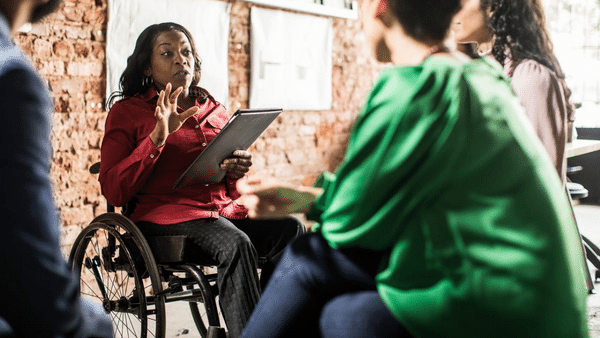A succession of news stories of the appalling treatment of autistic girls by police is shocking but not surprising. Carly Jones, who grew up with undiagnosed autism, says that there are essential safeguarding measures that must be taken now
I grew up autistic but wasn’t diagnosed until I reached my thirties. Then, after two of my daughters were diagnosed with autism, I became terrified that the vulnerabilities and negative experiences I had experienced without support would repeat themselves for the next generation.
There are no bigger drivers than fear and love. Those emotions, combined with a large dose of hindsight, means I haven’t stopped trying to safeguard other vulnerable autistic women and girls since. That’s why I have acted as a British Autism Advocate since 2008. And that’s why, when I see news reports of systemic failures hurting girls with autism, I take it personally.
Like many of us in the autistic community, I was heartbroken to read the stories of autistic girls’ negative experiences at the hands of the police.
There is ‘Olivia’, who is mixed race and autistic, and who was strip-searched in December 2020. That same month, 15-year-old ‘Child Q’ was strip-searched by police, and left so traumatised by the incident that she later tried to kill herself.
Then there are the horrific failures of the justice system in the case of Semina Halliwell, a 12-year-old girl with autism. Semina, a victim of rape, took her own life directly after an interview with a police officer who had previously discouraged her from bringing forward a criminal complaint and subsequently failed to properly investigate it.
Autistic girls are highly vulnerable when they encounter the justice system, whether as witnesses, victims or defendants. Vulnerabilities and misunderstandings become even more heightened when these girls have to face intersectional issues such as race, disability and adultification bias.
Autistic girls – just like any other child – should be afforded the safeguarding of an appropriate adult; and the Child First approach is key here. Many isolated autistic girls are at greater risk of being exploited by criminal gangs for county lines, sexual exploitation and extremism. We have to remind ourselves that they are victims. What they need is not scapegoating, but greater understanding and trauma-informed care.
In December 2021 I published the book Safeguarding Autistic Girls: Strategies for Professionals, which covers these issues. Many members of the autistic community and parents of autistic girls asked me to send a copy of my book to each police force in the UK. And with the help of Bellevue Law, a female-founded law firm who sponsored this, I have now emailed every Police Commissioner of every force in England, Scotland and Wales, offering to supply free copies, and help their police to understand and support autistic girls.
Within weeks, more than 70 per cent of those commissioners had responded and received the safeguarding book by post. Within a few weeks a free training video will also be sent to them for their teams. Those who haven’t yet responded will have a copy of the book sent to their office addresses anyway and the free training will be attached to a follow-up email.
So there won’t be a police force that hasn’t been given free autistic-specific safeguarding materials.
We cannot continue to let history repeat itself. The justice system must do everything in its power to protect autistic girls through Child First, and protect the most vulnerable at their most vulnerable hour. The justice system must also work with autistic women to create a safer society for girls with autism. We’ve got it wrong in the past but now we can learn from that and serve our young people better. As Maya Angelou said: ‘Do the best you can until you know better. Then, when you know better, DO better.’
Carly Jones MBE is an autistic woman and campaigner for the rights of autistic women and girls

Become an RSA Fellow
The RSA Fellowship is a unique global network of changemakers enabling people, places and the planet to flourish. We invite you to be part of this change.
Related articles
-
The Modern Cockney Festival event at RSA House
Fellowship news
On Wednesday 22 March, this event, part of The Modern Cockney Festival (3 March-4 April), explores how invisible discrimination is still widespread in modern Britain. Three different groups highlight their experiences, responses, and challenges - the Jewish community, those facing ageism, and Cockneys.
-
Social model of disability: five decades on
Blog
Lianna Etkind
Marking Disability History Month 2022 we spoke to three Fellows about the first 50 years of the social model of disability and what the future holds.
-
Educating the City: Learning through inspirational partnerships
Fellowship news
RSA Fellows are invited to join the Educating the City Learning through inspirational partnerships seminar.




Be the first to write a comment
Comments
Please login to post a comment or reply
Don't have an account? Click here to register.